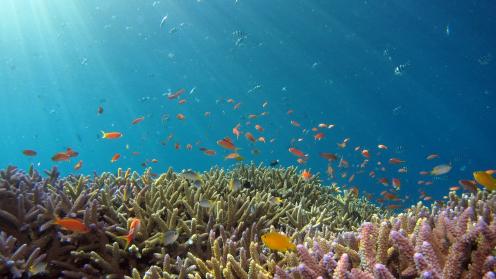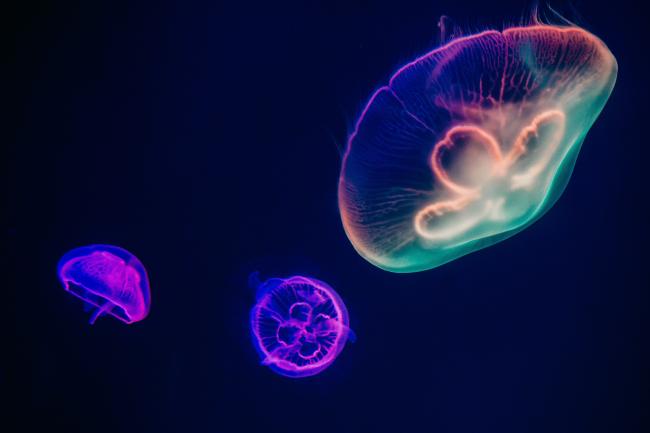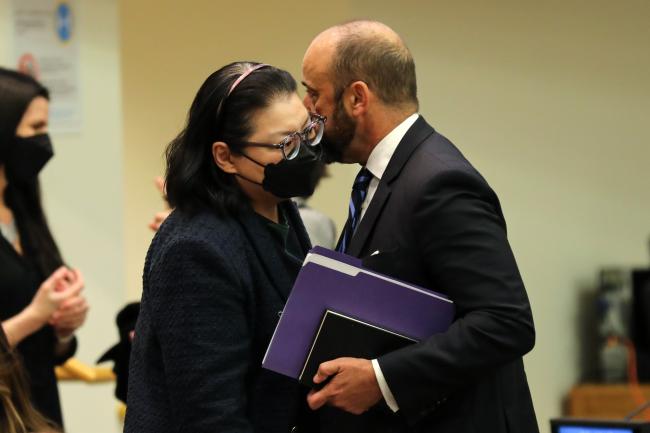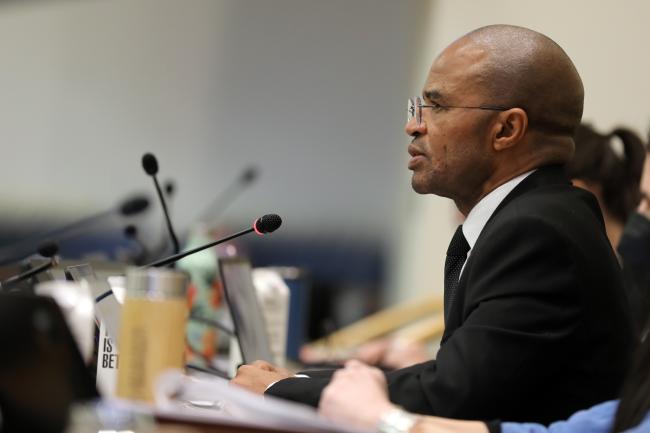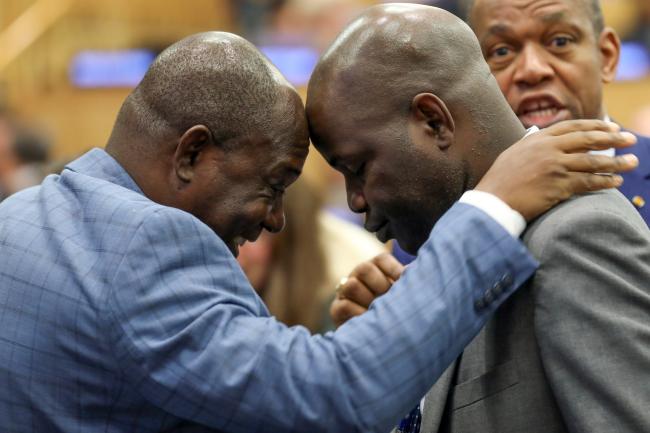Delegates continued to work to find compromise on outstanding issues as the resumed fifth session of the Intergovernmental Conference (IGC-5.2) on the conservation and sustainable use of marine biological diversity of areas beyond national jurisdiction (BBNJ) entered its eighth day.
Want to dive deeper? Read the full Earth Negotiations Bulletin daily report.
During a brief stocktaking plenary in the morning, facilitators provided progress reports. Delegates heard a statement by UN Secretary-General António Guterres, noting that “our Ocean has been under pressure for decades and we cannot ignore the Ocean emergency.” Miguel de Serpa Soares, Secretary-General of the IGC, who delivered the statement, stressed the need to address threats to the Ocean and ensure the conservation and sustainable use of marine biological diversity, proving that the UN Convention on the Law of the Sea (UNCLOS) can adapt to evolving challenges and ensure a healthy, more resilient, and more productive Ocean, benefitting humankind as a whole.
IGC President Rena Lee, Singapore, shared that she had convened President’s consultations on Tuesday, addressing questions related to monetary benefit-sharing. She said delegates were able to identify common elements among the different proposals, stressing that “we will need to iron out the details in the text.”
Delegates spent the rest of the day addressing outstanding issues related to: area-based management tools (ABMTs), including marine protected areas (MPAs); environmental impact assessments (EIAs); capacity building and the transfer of marine technology (CB&TT); and cross-cutting issues, including institutional arrangements and dispute settlement.
On ABMTs, delegates discussed but were not able to agree on the definition of MPAs. They also were unable to agree on other sections of this part, including on an objective related to food and socioeconomic security, and on high seas pockets.
On public notification and consultation related to EIAs, delegates agreed to refer to time-bound opportunities for stakeholder participation “as far as practicable.” A lengthy discussion took place on a provision addressing high seas pockets, namely areas of the high seas that are entirely surrounded by the exclusive economic zones of states—which was reiterated under the consultations on and assessment of proposals of ABMTs—with delegates unable to reach consensus.
On the additional modalities for the transfer of marine technology, delegates discussed compromise language related to the terms under which technology transfer will be undertaken, agreeing that this transfer “shall take place on fair and most favorable terms, including on concessional and preferential terms, and in accordance with mutually agreed terms and conditions.”
On institutional arrangements, delegates made progress cleaning text on provisions related to the secretariat and transparency. On the secretariat, two options remain on the table, with delegates still addressing whether to establish a stand-alone secretariat or to grant the Division of Oceans and Law of the Sea (DOALOS) secretariat functions for the new BBNJ agreement. Delegates were not able to agree on the establishment of a proposed scientific and technical body.
On dispute settlement, delegates continued to consider three options related to dispute-settlement procedures. The first, supported by many as a baseline for negotiations, foresees mandatory dispute-settlement procedures. The other two propose negotiations and/or consultations for the settlement of disputes.
There were no official small group discussions scheduled during the day, although some delegates still met to chart ways forward on clusters of outstanding issues. IGC President Rena Lee held consultations with heads of delegations in the afternoon and into the night, with a view to hammering out an acceptable package deal for a new high seas treaty.
To receive free coverage of global environmental events delivered to your inbox, subscribe to the ENB Update newsletter.
All ENB photos are free to use with attribution. For the Resumed 5th Session of the Intergovernmental Conference (IGC) on BBNJ, please use: Photo by IISD/ENB | Mike Muzurakis
